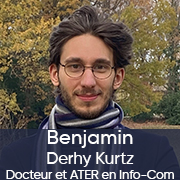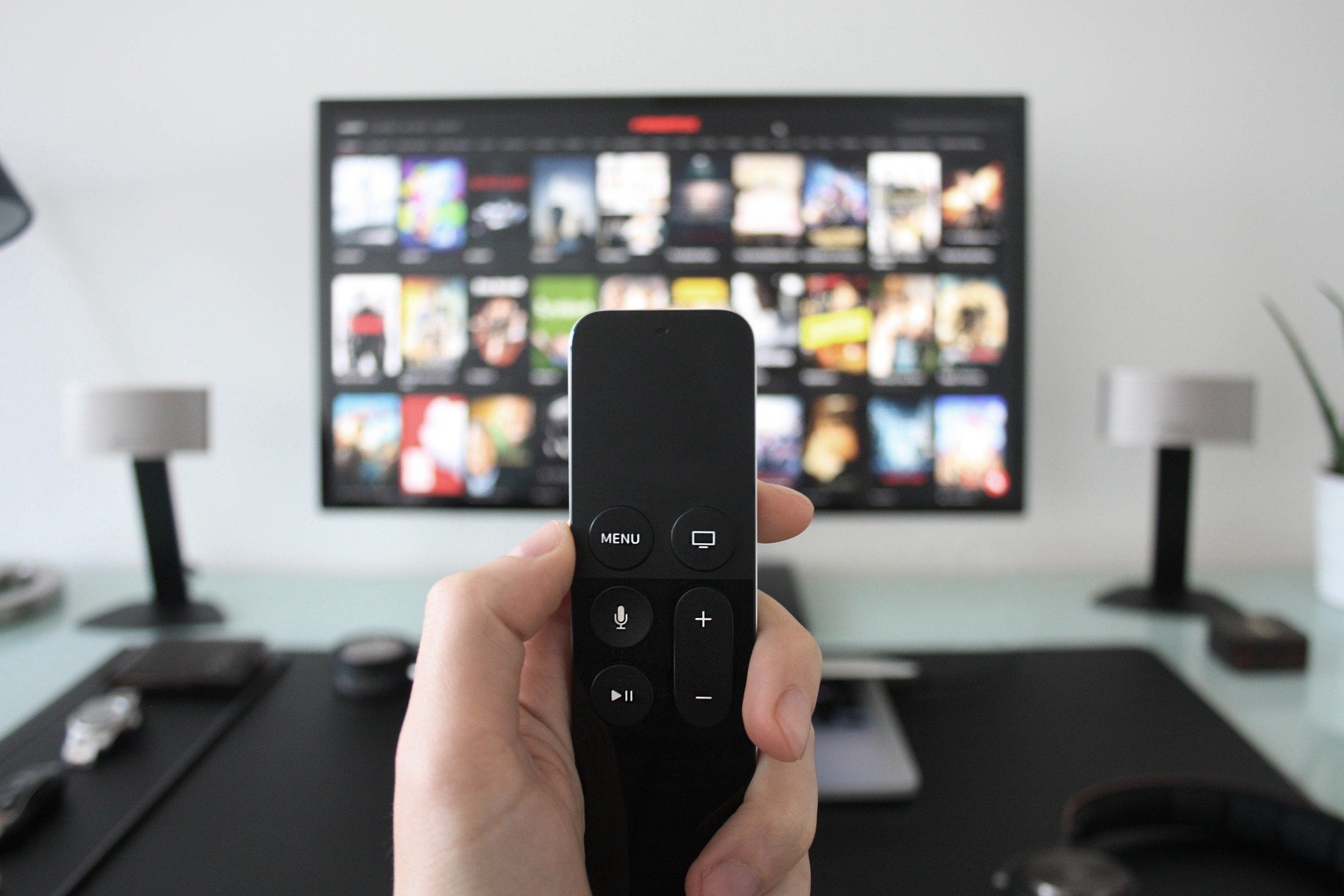[Portrait] Benjamin Derhy Kurtz, Doctor and A.T.E.R in Information-Communication
What is your research about?
I study the creative industries and cultural institutions (in particular the television industry, the film industry and, more recently, the music industry) through four complementary prisms: the personnel and economic functioning of the industry (including measures of success and social relations), the representation of the professionals of these industries by the press, the practices of production, narration and dissemination (in particular through transmedia) and finally the audiences of these productions, namely the publics.

What are your current scientific activities?
My second book, entitled The television industry revisited: typology, social relations and notion(s) of successwas published this summer [2020] by L'Harmattan. Prefaced by Bernard Miège, this book explores the notion of "success" through the discourses of audiovisual industry professionals.
>> Listen to the interview with Benjamin Derhy Kurtz about his book
I have since written a notice for the Publicist on Transtextsthe subject of my previous book, The Rise of Transtexts (Routledge, 2016), co-edited with Mélanie Bourdaa, this notion translates a desire to rethink transmedia narration by reinserting fan creations within the concept.
I then published an article entitled "Happiness by laudation: personal measures of success in the television industry for the French Journal of Information and Communication SciencesFollowing a previous publication analysing professionals' discourses on "The love of a job well done.
I will also be presenting a paper with a colleague to the XXII Congress of the SFSIC (French Society of Information and Communication Sciences) on "The future of artistic and cultural action in the discourse of professionals and I am currently working with researchers from the Laboratoire Biens Normes et Contrats, the Laboratoire d'Informatique d'Avignon and the Laboratoire Culture et Communication of Avignon University on Fake News. Our multidisciplinary approach focuses on their definition, propagation, politicisation and legal aspects. We are preparing to organise a conference on 24-25 June 2021.
Finally, I speak every month on France Bleu Vaucluse in the programme " Worth the diversions - The guest who is worth the diversions " to talk TV.
You can find me on http://www.Derhy.TV/ as well as on Twitter.
Why did you choose to work in academic research?
I have always had this thirst for knowledgeI have a background in all fields: art, history, archaeology, cinema, television, communication, etc. I studied science in high school, went to a Franco-American business school in Paris, and got a PhD in "Film, TV & Media Studies in the UK, and I am now qualified (MCF) in Information-Communication.
Diversity of topics and multidisciplinary research have always been a matter of course for me, as have the desire to teach (notably passed on by my mother and grandmother). It is therefore quite natural that I went into academic research, rather than "pure", finding the sharing of knowledge and the human link formed with students fundamental. This is also why I love my role as L1 pedagogical manager and working on international mobility for students.
What advice would you give to students who want to do research?
I would repeat to you, as advice and method for any presentation and for any work, including research work, this sentence that my thesis director told me once, and that I have never forgotten: you can say whatever you want, as long as you can justify it! It is both emancipatory, since it frees you from any straitjacket: even if a person does not agree with you, he or she will have to recognise the soundness of the reasoning presented, and self-regulatory, since if you cannot find a tangible justification for your decision or analysis, there is an inherent problem with it, and it is therefore not valid.
Which object or image from your research best illustrates you?
This photograph from an image bank illustrates for me this connected multi-platform worldIn this way, we can create a new kind of media, where medium and multimedia, linear and digital, creation and interaction are merged, where television no longer needs a television set, while remote controls can be operated by voice.

The laboratory
The LCC specialises in the communicative approach to cultural facts and conducts research on cultural institutions, practices and audiences.
>> Read more
The portraits
Mis à jour le 24 January 2023